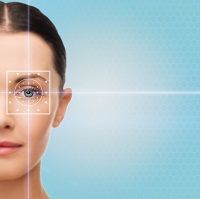Poor Visual Symptoms in Multiple Sclerosis Patients
Multiple sclerosis patients with histories of neuro-ophthalmic symptoms tend to perform poorly on neuropsychological tasks.

Multiple sclerosis (MS) patients with histories of neuro-ophthalmic symptoms performed poorly on neuropsychological tasks, according to a study published in the Journal of Neuro-Ophthalmology.
Researchers from the Kessler Foundation in West Orange, NJ included 27 patients in a study examining neuro-ophthalmic syndromes in order to test if MS patients performed worse on the skill demonstration tests. Typically visual symptoms in MS patients include blurred vision, diplopia, and nystagmus, the researchers added. Sometimes, they wrote, these symptoms are a clue to MS onset, but they may occur as MS progresses as well.
There were 18 participants with MS included in the study; the researchers broke them up into groups based on neuro-ophthalmic symptoms. There were six patients in the group with MS but without visual symptoms, 12 MS patients with visual symptoms, and nine age and education matched healthy control subjects also involved in the study. The participants underwent a neuropsychological assessment performed by the researchers.
The MS patients with visual problems performed worse on the symbol digit modalities test than the patients without visual problems but with MS. The healthy controls performed the best on the tests among the three groups.
“The group with a history of neuro-ophthalmic syndromes performed poorly on tasks of visual processing speed,” study author Silvana Costa, PhD, explained in a press release. “Performance appeared to be influenced by the time limited nature of the task, suggesting that participants with a history of neuro-ophthalmic syndromes have residual delays in visual processing speed. History of these syndromes was also associated with poor performance on the Symbol Digit Modalities Test, which may be caused by the need for more time to process the visual stimuli, thus limiting the time available for the cognitive task of linking the numerals.”
In the future, the researchers believe that studies should focus on measures of vision, neuroimaging data, and valid measures of disease progression and disability, they continued in the statement.